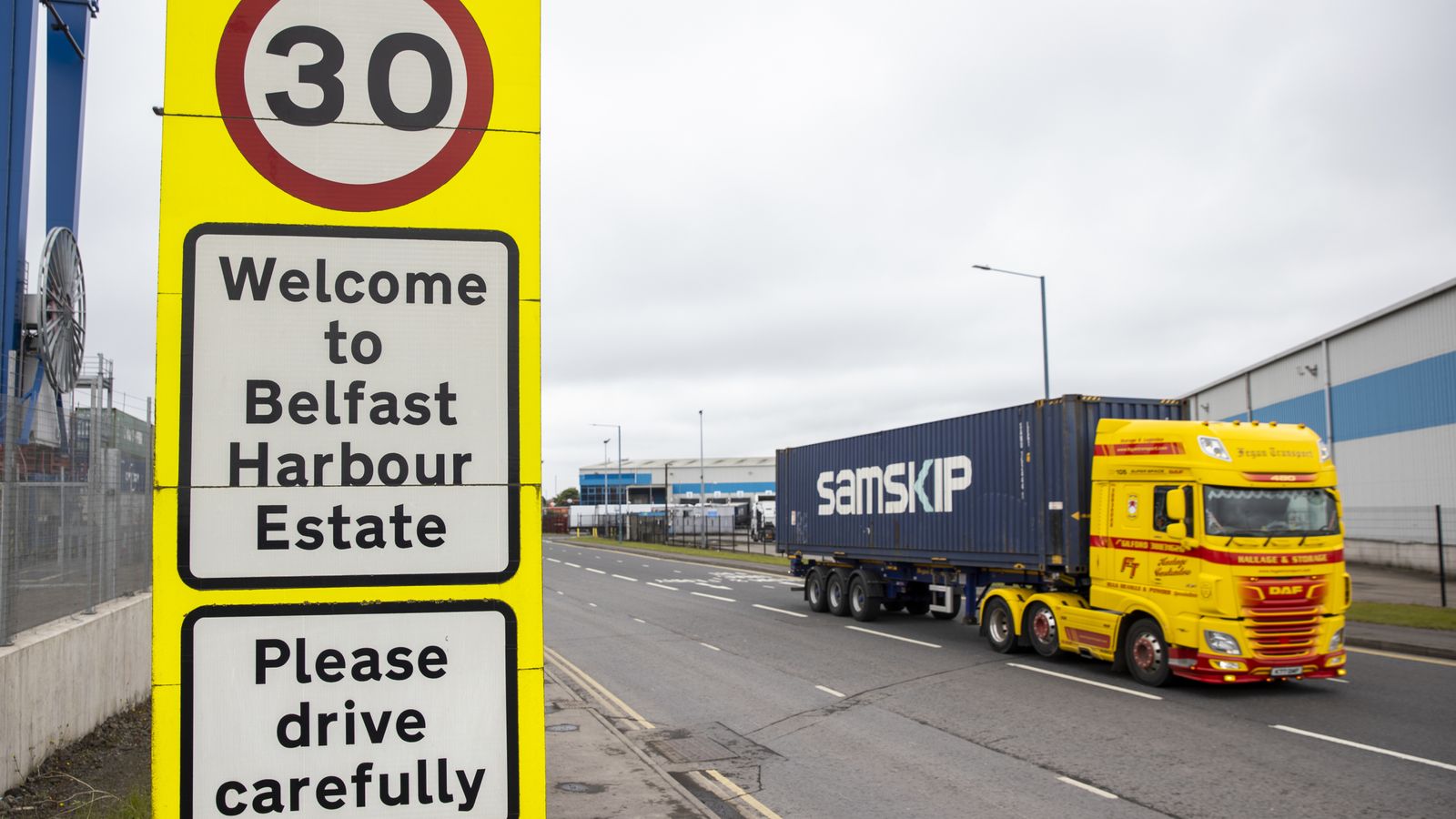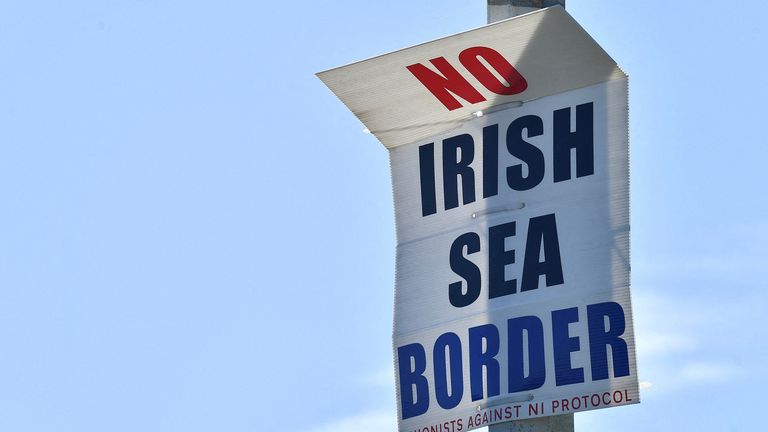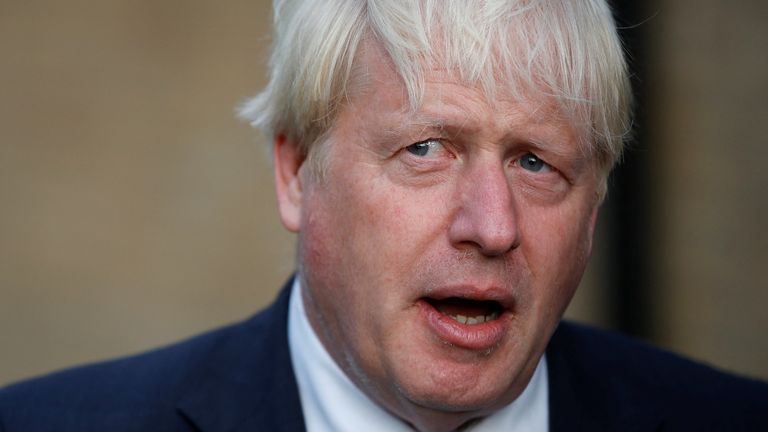
Brexit: What are the DUP’s seven tests for a Northern Ireland Protocol replacement? | Politics News
Ever since the Northern Ireland Protocol was signed off by both the UK government and the European Union as part of its Brexit deal, it has caused friction in the region.
While nationalist parties have welcomed remaining in line with some EU rules to avoid a hard border on the island of Ireland, unionists claim it has had an adverse impact on trade between Great Britain and Northern Ireland and threatened its place within the UK.
As a result, the Democratic Unionist Party (DUP) has refused to form an executive in Stormont unless the protocol is scrapped, leaving the assembly unable to function.
Politics live: Brexiteers criticise Sunak’s handling of EU talks
There are now rumours a new deal will be announced by the UK and EU to fix some of the issues over the protocol and to get the DUP on board.
But, in order to do that, whatever plan is on the table will have to pass the party’s “seven tests”, laid out by DUP leader Sir Jeffrey Donaldson back in July 2021.
So, what are those tests?
1. Guarantee the sixth article of the Act of the Union 1800
It may be over 200 years old, but the principle of this part of legislation remains of the utmost importance to the DUP.
The idea is that every citizen of the UK be “entitled to the same privileges and be on the same footing” as anyone else in the country.
Sir Jeffrey said that under the current protocol, the principle was “clearly no longer the case”.
2. Avoid diversion of trade
The DUP leader also said it was “simply not acceptable” that consumers and businesses in Northern Ireland could be told to purchase certain goods from the EU and not from Great Britain.
He insists this must not be allowed to happen in any new deal.
3. No border in the Irish Sea
When negotiations were taking place between the UK and EU over Brexit, there was a big focus on preventing the return of a border on the island of Ireland to protect the Good Friday Agreement.
But by leaving the bloc, a theoretical trade border was created, leading to additional checks on goods travelling between Great Britain and Northern Ireland, in case they passed on into the Republic of Ireland.
Sir Jeffrey said this must end and “Northern Ireland’s place in the UK internal market must be fully restored”.
4. Giving NI people a say in their laws
Under the current protocol, Northern Ireland has to stick to some of the EU rules to allow goods to move freely between it and the Republic of Ireland.
But, as Northern Ireland is part of the UK, it means it no longer has any say over those rules.
The DUP says this lack of “democratic control” must be changed for them to agree any deal.
5. No checks on goods between GB/NI
Boris Johnson told Sky News’s Sophy Ridge back in 2019 that there would be “no checks on goods going from Northern Ireland to Great Britain, or from Great Britain to Northern Ireland” after Brexit.
But under the protocol, that is not the case, with goods undergoing EU import procedures at ports in case they make their way into the Republic of Ireland.
Sir Jeffrey said he wanted these checks to end, though he said: “We do of course accept that checks that were in place before Brexit should continue and goods that are proceeding on from Great Britain, through Northern Ireland, to the EU may have different arrangements.”
Read more:
What is the Northern Ireland Protocol and why does it matter?
What is the Brexit deal being discussed between UK and EU?
Brexit deal over Northern Ireland not likely this week, minister suggests
6. No new regulatory barriers between NI and rest of UK – unless agreed in Stormont
This demand does what it says on the tin and says new regulatory differences between Northern Ireland and the rest of the United Kingdom could only come into force if voted for and agreed upon by the region’s executive and assembly.
7. Preserve ‘letter and spirit’ of NI’s position set out in the Good Friday Agreement
The peace agreement requires the consent of a majority of people in Northern Ireland for any reduction in its status as part of the UK.
The DUP says any deal with the EU must keep this rule in place.
When he first outlined his seven tests, Sir Jeffrey concluded: “There is no practical or pragmatic reason why arrangements cannot be put in place which can satisfy these tests and prove no meaningful threat to the integrity of the EU Single Market.
“But with or without the agreement of the EU it is critical that the UK government honours the promises that have been made to the people of Northern Ireland.
“My party will be assessing any new arrangements against these seven tests and I hope for the sake of the integrity of the United Kingdom and the people of Northern Ireland, we will not be disappointed.”




